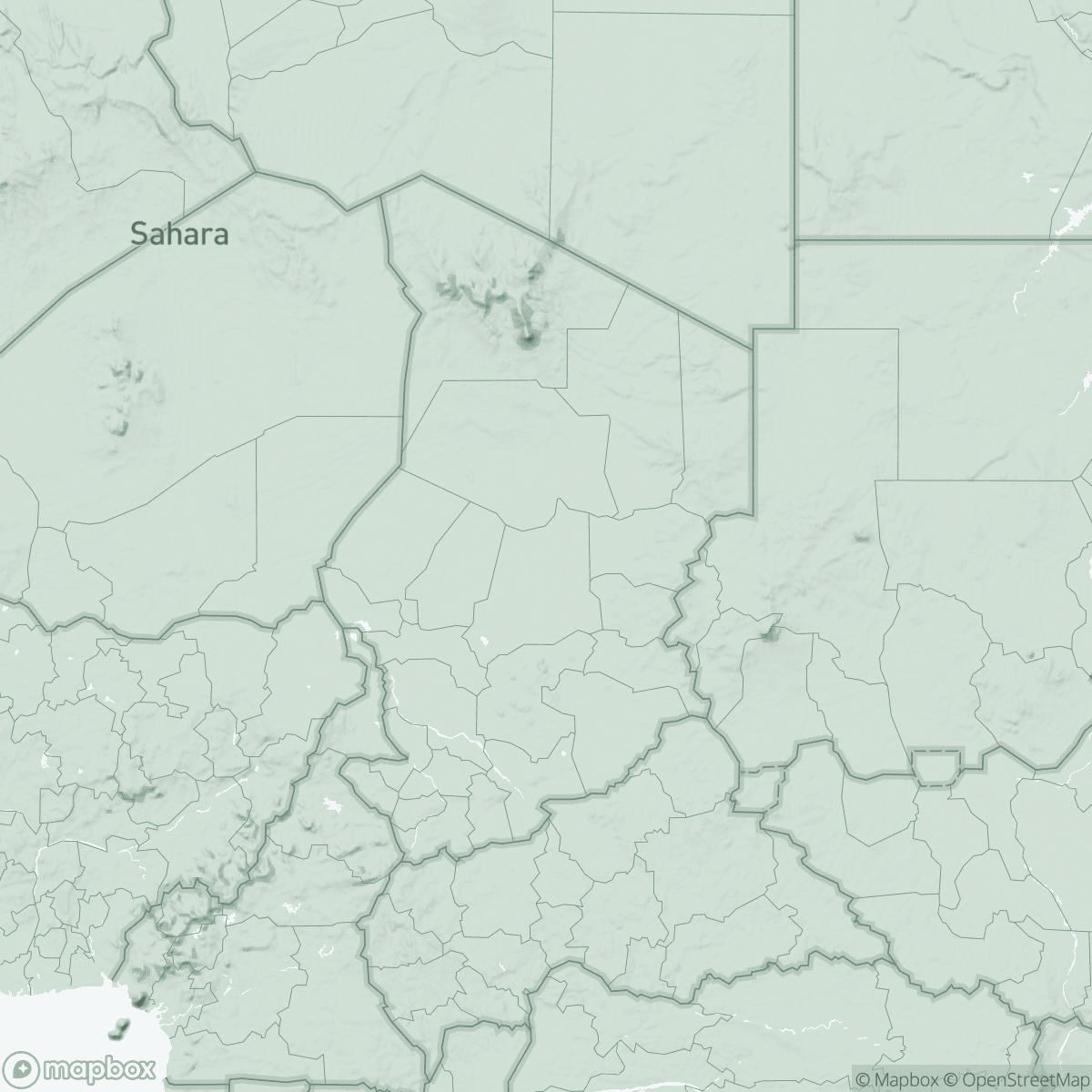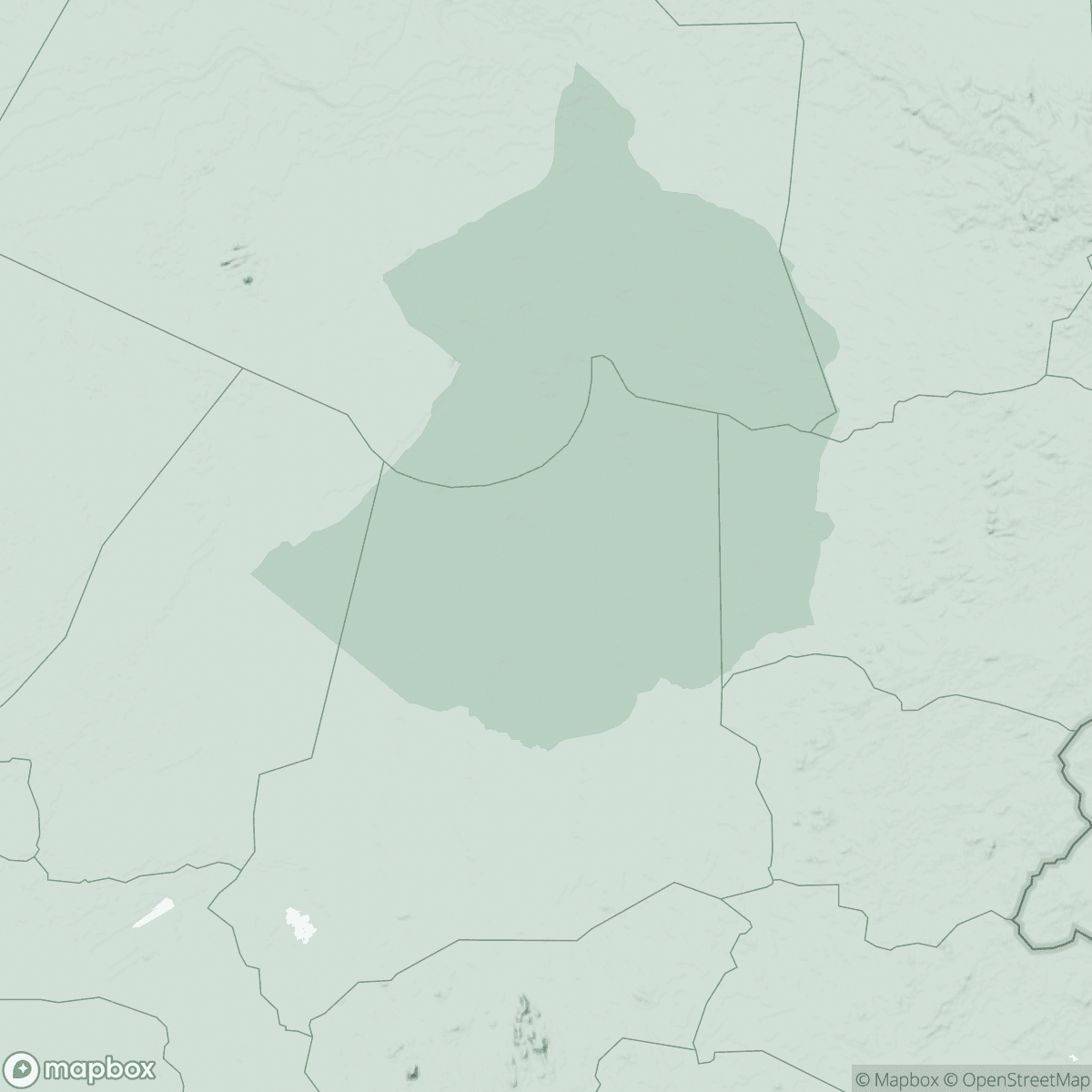
Eastern Chad: “At some point everyone in the Metche refugee camp was involved in helping to construct the hospital”.
In 1 click, help us spread this information :
Over half a million Sudanese refugees1 have settled in eastern Chad since the outbreak of the war in April 2023. Médecins Sans Frontières (MSF) project coordinator, Myriam Laroussi shares her insights about the plight of people there, after concluding a seven-month assignment in Metche, one of several camps in the area.
Metche is a small and remote area south of the border town of Adré where most of the arriving refugees first settle. It takes two hours to get there from Adré on very rough off-road terrain. There were only a couple of villages there before the refugee camp was created at the end of 2023. It was like pointing a finger in the middle of the desert and saying ‘let’s go there’.
This is an area with extreme temperatures of up to 50 degrees during the day and cold nights. During tempests, the wind makes you eat sand from day to night; and the rainy season, as it is now, brings heavy rains.

Around 50,000 refugees live here now. When MSF started working in Metche last year, we first improvised a clinic for basic consultations with tents. As more people arrived, we created a hospital from zero. We set up the drainage system, constructed concrete platforms to put in more resistant tents, did the electrical work…
It was challenging: often many things didn't work as we expected and getting in supplies requires a lot of logistic planning because the roads don’t allow an easy passage. We kept on moving and learned a lot in a short time. At some point everyone in the Metche refugee camp was involved in helping to construct the hospital: including thousands of daily workers and the more than 500 local and international MSF staff.
We run all the classic hospital activities: from triage to the emergency room and observation, to paediatrics, neonatology, internal medicine, maternity, a laboratory, and an inpatient therapeutic feeding centre, which is currently the busiest department of all and keeps registering new admissions of malnourished children. In August, we opened the operating theatre and started surgical activities.
Late arrivals, lack of water and difficult memories
This 115-bed hospital is the main secondary healthcare facility for about 200,000 people, including the refugees from Metche and the local communities, as well as people from nearby camps such as Allacha and Arkoum.
However, accessing the facility proves difficult due to a poor referral system as there are only three available ambulances for the whole Ouaddaï province and this leads to some patients arriving late, and even dying before reaching the hospital. That’s why community outreach work has been crucial. Through health promotion and mental health activities, we have obtained a deeper understanding of the needs of the people. At the beginning of the emergency response, we trucked a lot of water, although other partners started later building the water network. Nevertheless, refugees get a maximum of 14 litres of drinking water per person per day, far below the minimum standard in an emergency situation, considered to be 20 litres.
People spend hours trying to get water, with family members splitting up to go fetch water from different water points. I remember a patient, a 22-year-old young man who was accompanied by his family. He was a very big and strong guy, in good health, but he contracted hepatitis E and died a couple of days after coming to the hospital. It was totally unexpected. We have seen tougher cases, but he deteriorated fast. I thought: ‘Life can be hard. He has survived the worst during the war and has now died from drinking dirty water’.
Refugees in Metche arrive mostly after fleeing El Geneina [capital of West Darfur state], a city hit by some of the worst violence of the war, including ethnically motivated attacks against the Masalit communities by the Rapid Support Forces and allied militias. Many are originally from other areas of Darfur as well, and have experienced repeated forceful displacement over the years as this Sudanese region has faced conflict since the early 2000s.
The majority are women and children, and almost every family has lost somebody. Among them you find qualified professionals who now have no jobs; mothers struggling to put food on the table for their children, and children who are orphans and on their own.
People are doing everything they can to make up for what humanitarian aid doesn’t provide. Some sell little things. Others have started volunteering activities like music, theatre, and informal schools in the camps. Amid all the challenges, children are children and you see them creating toys and playing. Some refugees have started going briefly back to Sudan, mostly to El Geneina and nearby towns for now, to check on remaining relatives there, to collect items or make some money, but they later return to the camp.

Much more assistance is needed
The resilience of these people is incredible and so is the urgency of their needs. As one of the main organisations working in Metche, MSF is often seen as “the mother who fights for them”, and we are doing all we can, both here and in the other camps, but there is still so much to be done and, as the war continues unabated, people keep on arriving from Sudan.
The Chadian authorities have done a wonderful job by welcoming so many people into their territory. Beyond this gesture, the reality is that nobody really cares about this crisis in eastern Chad. Many refugees are forced to have just one meal a day, they lack adequate shelter, clean water and don’t have sufficient latrines. Shamefully the response remains far below what is required. If no action is taken to fund and scale up the humanitarian assistance, the crisis will further deepen exposing refugees to more suffering.
Between the start of activities at the hospital in September 2023 and July 2024, MSF teams in Metche have provided 5,530 Emergency Room consultations, admitted 2,282 people for inpatient care, treated 692 acute malnourished children, and assisted 322 deliveries.
(1) Over 784,000 people have crossed to Chad since April 2023, including Sudanese refugees and Chadian returnees (UNHCR, 23 June). Prior to the current conflict, Chad already hosted over 400,000 Sudanese refugees.


